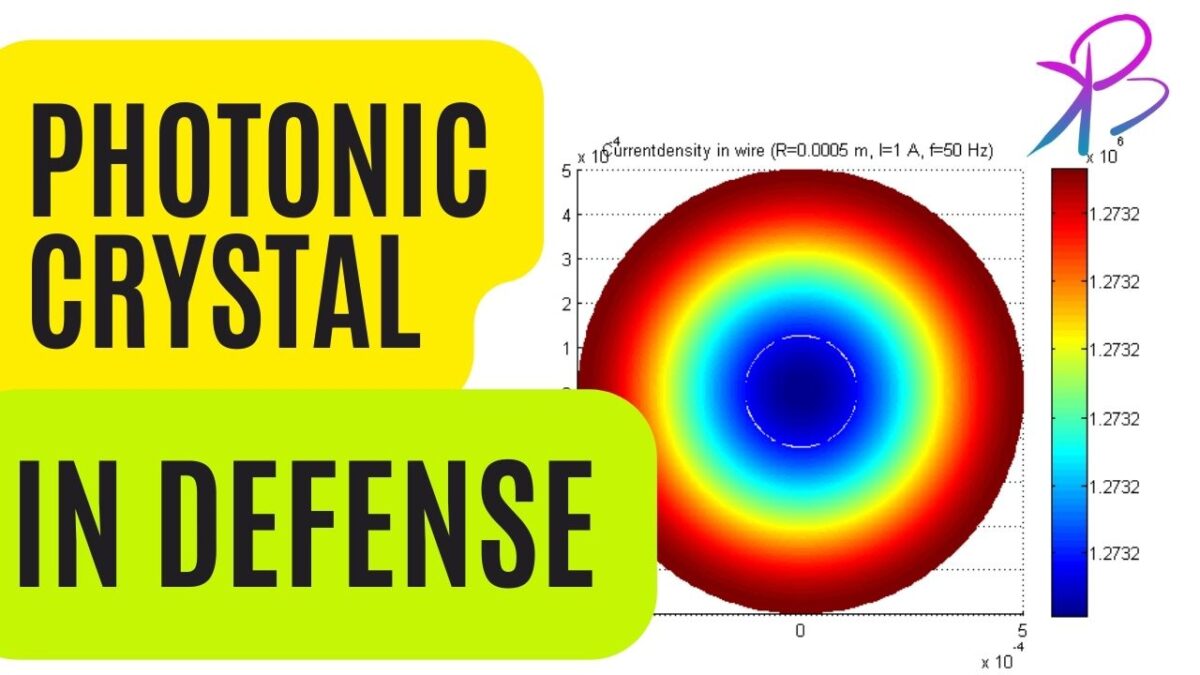Learn research in photonic crystal research in defense and explore its innovative applications, benefits, and future potential. Dive into this cutting-edge field of science today!
Introduction

Photonic crystals have rapidly emerged as a key area of research in defense technology. Their unique properties and potential applications have garnered significant interest among scientists and defense experts alike. In this article, we'll dive into the fascinating world of photonic crystals, explore their potential applications in defense, and learn how you can get involved in this groundbreaking field of research.
Learn Research in Photonic Crystal in Defense
What are Photonic Crystals?

Photonic crystals are nanostructures that manipulate the flow of light at the subwavelength scale. These crystals exhibit unique properties, such as photonic bandgaps, which prevent light of certain frequencies from propagating through the material.
Why Photonic Crystals Matter in Defense
Enhanced Communication Systems

Photonic crystals have the potential to revolutionize communication systems in defense applications. By manipulating light at the nanoscale, these crystals can enable the development of ultrafast, secure communication networks that are resistant to interference and eavesdropping.
Advanced Sensing and Imaging Technologies
Photonic crystal sensors can detect minute changes in the environment, making them ideal for applications like chemical and biological warfare detection. Additionally, their unique light manipulation properties can be leveraged for advanced imaging systems, such as high-resolution thermal imaging and stealth technology.
Improved Energy Efficiency
Photonic crystals can be used in solar cells and other energy harvesting devices to improve their efficiency. This can lead to more sustainable defense systems and reduced reliance on traditional energy sources.
Getting Started with Photonic Crystal Research
Academic Pathways
To learn research in photonic crystal in defense, you'll need a strong background in physics, materials science, or a related field. Pursuing a degree in one of these areas is a great starting point.
Research Opportunities
Many universities and research institutions offer opportunities to work with experts in the field of photonic crystals. Joining a research group or collaborating with experienced researchers can provide invaluable experience and help you develop your skills.
Networking and Conferences
Attending conferences and workshops focused on photonic crystals and defense applications is an excellent way to stay up-to-date on the latest developments and connect with other researchers.
Key Research Areas in Photonic Crystal Defense Applications
Stealth Technology
Researchers are exploring the use of photonic crystals to create advanced stealth technologies. By manipulating the flow of light, these materials can reduce the radar cross-section of military vehicles and aircraft, making them difficult to detect.
High-Power Laser Systems
Photonic crystals can be used to create high-power laser systems for various defense applications, such as missile defense and directed energy weapons. These systems can provide unparalleled precision and effectiveness in combat situations.
Adaptive Camouflage
Photonic crystals can enable the development of adaptive camouflage systems that change color to match their surroundings, providing enhanced concealment for military personnel and equipment.
Challenges and Future Directions
Scalability and Manufacturing
One of the main challenges in photonic crystal research is developing scalable manufacturing processes to produce these materials in large quantities at a reasonable cost.
Integrating with Existing Systems
Another challenge is integrating photonic crystal technologies with existing defense systems and infrastructure. This requires overcoming compatibility issues and ensuring seamless integration.
Frequently Asked Questions
- What are the key properties of photonic crystals? Photonic crystals are characterized by their unique ability to manipulate light at the nanoscale, including the creation of photonic bandgaps and the control of light propagation.
- Can photonic crystals be used in civilian applications? Absolutely! Photonic crystals have potential applications in a wide range of industries, including telecommunications, healthcare, and renewable energy.
- How do photonic crystals contribute to energy efficiency in defense systems?
Photonic crystals can improve the efficiency of solar cells and other energy harvesting devices, reducing the energy consumption of defense systems and promoting sustainability. - What are some potential drawbacks of using photonic crystals in defense applications?
Some challenges include scalability, manufacturing costs, and integrating these technologies with existing defense systems and infrastructure. - Are there any ethical concerns surrounding the use of photonic crystals in defense?
As with any advanced technology, it is essential to consider the ethical implications of its use in defense applications. This includes the potential for misuse, as well as the need for international collaboration and regulation. - How can I stay updated on the latest developments in photonic crystal research?
Attending conferences, workshops, and following the latest publications in the field are all great ways to stay informed on the latest advancements in photonic crystal research.
Conclusion
The field of photonic crystal research in defense is ripe with innovation and potential. As researchers continue to explore the unique properties of these materials and their applications, we can expect to see significant advances in defense technology in the coming years. If you're interested in learning research in photonic crystal in defense, now is an exciting time to get involved. Whether it's through academic study, research opportunities, or networking at conferences, you can contribute to the development of these cutting-edge technologies and help shape the future of defense.
Follow us at our FREE youtube channel 👇
Check out all the resources by the author
Interested in Engineering Courses ? Global best selling courses !
a bkacademy initiative
